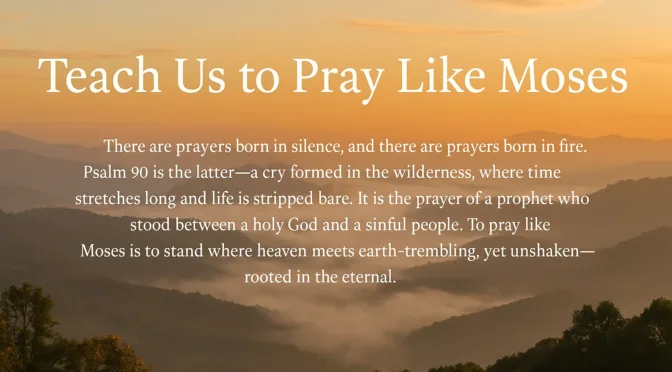We pray. Sometimes with tears. Sometimes with fasting. Sometimes with a quiet desperation that no one else sees. We lay our burdens before the throne and ask the Lord to move. And He does. He is faithful. He is listening. He is near. But when the answer comes, we often don’t recognize it. Why? Because God’s answers rarely fit our assumptions.
We expect fire from heaven, and He sends dew on the grass. We look for open doors, but He builds a narrow gate. We cry out for deliverance, but He first calls us to obedience. And if our hearts are not soft, if our eyes are not open, we may miss the very thing we’ve been pleading for.
This is not a new problem. The religious leaders of Yeshua’s day longed for the Messiah. They studied the Scriptures, fasted twice a week, gave tithes, and made long prayers. Yet when the Answer stepped into their midst, clothed in flesh and walking among lampstands, they rejected Him. “He came to His own, and those who were His own did not receive Him” (John 1:11 NASB).
They expected a general, not a Lamb. A sword, not a cross. A throne, not a manger.
And so they missed Him.
Let us be warned, beloved. For we are not immune to the same blindness. Sometimes we don’t see the answer because it doesn’t come in the form we expected. We must cry out: “Lord, open our eyes. Keep our hearts tender. Let us see when You move, even when it surprises us.”
One story that captures this truth with clarity is the healing of Naaman the leper.
The Healing That Almost Didn’t Happen
Naaman was a great man. A commander. A warrior. But he had leprosy. He traveled from Syria to Israel, bearing gold and silver, expecting a prophet to meet him with fanfare and healing power. But when Elisha didn’t even come to the door—only sent a message to wash in the Jordan River seven times—Naaman was offended.
“I thought he would surely come out to me, stand and call on the name of the Lord his God, and wave his hand over the site and cure the leprosy” (2 Kings 5:11 NASB).
Naaman had a picture in his mind of how God should work. And when the answer didn’t match his expectations, he almost walked away from his miracle.
It took the gentle urging of his servants to say, “My father, if the prophet had told you to do something great, would you not have done it?”
So he humbled himself. He dipped in the Jordan. And he was healed.
Beloved, how many times have we done the same? We pray for breakthrough and expect it in the form of promotion, but God sends pruning. We ask for healing and look for an instant miracle, but He sends a slow restoration. We cry out for revival, but He whispers, “Start by repenting.”
The answers come, but our assumptions blind us.
Watch for the Unlikely Answer
God is not obligated to meet our expectations. He is sovereign. He is holy. His ways are not our ways (Isaiah 55:8–9). And often, He sends the answer in a way that tests whether we love His presence or just our preferences.
The disciples on the road to Emmaus walked with the risen Christ—and didn’t even know it. Mary mistook Him for a gardener. Peter thought it was just a man on the shore saying, “Cast the net on the right side.”
When we reduce God’s answer to our prediction, we stop listening. We stop looking. We stop discerning.
That is why the Spirit calls us to humility: “Today, if you hear His voice, do not harden your hearts” (Hebrews 3:15 NASB).
Prayers God Answers Differently
Sometimes God answers with:
- A delay, to build perseverance
- A closed door, to redirect
- A challenge, to refine
- A person, to sharpen us
- A small beginning, to teach faithfulness
- A word of correction, before He opens a door
Lord, teach us to recognize the form of Your voice, even when it comes wrapped in discomfort.
A Prayer to Stay Open
O Father, how often we ask, and You answer—yet we do not see. How often we expect, but not according to Your wisdom. Lord, forgive us for putting You in our boxes, our systems, our timelines. Forgive us for the arrogance of assuming You must move our way.
We humble ourselves. We soften our hearts. We ask You to open our eyes. Let us not miss You when You come through unexpected means. Let us not despise the Jordan, when it holds our healing. Let us not reject the whisper, when it carries our breakthrough. We trust You, not just what we hoped for.
You are the Answer. You are the Way. You are always enough.
In Yeshua’s name, Amen.


















